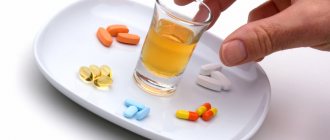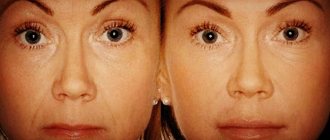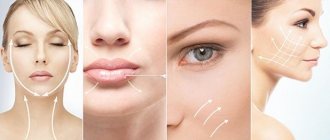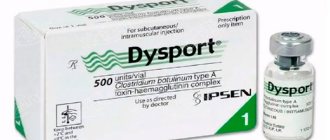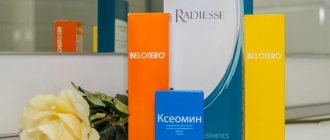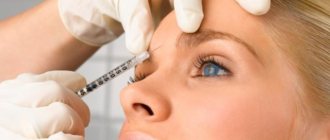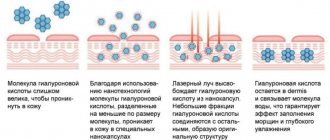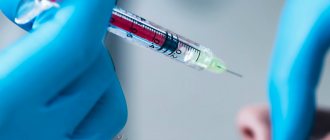Fillers are gel-like preparations that serve as a filler for cosmetic injections.
Before the procedure for cosmetic injection of hyaluronic acid into the skin, it is important to know about the procedure itself and contraindications. At an appointment with a cosmetologist, many people discuss the topic of alcohol: whether fillers and alcohol are combined, whether it is possible to drink alcohol before or after a facial correction procedure or whether it is strictly prohibited. The position of cosmetologists on this issue is clear: it would be better to play it safe against any complications and strictly prohibit the patient from drinking alcohol. However, such categoricalness is not always necessary.
People who are addicted to intoxicating drinks most likely know very well: it is largely because of this destructive passion that the need to go to a cosmetologist arises. And it occurs much earlier than in non-drinkers. Alcohol disrupts the natural synthesis of hyaluronic acid, and interventions have to be resorted to. Even one glass of wine harms the skin, causes dehydration and swelling, provokes early aging and the appearance of early wrinkles. So, to preserve youth and beauty of the skin, it is better to give up this habit for good, because ethanol is harmful to the skin, whether fillers are injected into it or not.
Alcohol and skin
Alcoholics are not beautiful and prosperous, their faces do not shine with youth and health. Strong drinks have a number of negative effects on the body:
Dry skin
- Alcohol causes swelling and the face takes on a swollen appearance.
- The skin dries out as general dehydration occurs due to the diuretic effect.
- The skin loses turgor and begins to sag, jowls and double chins appear.
- Alcohol dilates blood vessels and over time, noticeable capillaries remain on the face forever, the face quickly turns red.
- Alcohol clogs the liver, which causes rashes and acne.
- Due to alcohol abuse, a person experiences problems sleeping, which causes dark circles under the eyes.
- Wrinkles appear much earlier than in non-drinkers.
- When drinking alcohol, the complexion becomes pale and dull, and over time turns yellow, as the liver is in poor condition.
- Hormonal balance is disrupted; in women, the skin may become rougher, comedones and an oily sheen appear.
Side effects and complications
Among the most common side effects and complications that arise from drinking alcohol before or after mesotherapy, cosmetologists call:
- Redness and bruising in the injection area. These symptoms usually disappear within a few hours. But if you drink even just a little alcohol during the preparation and recovery period, unsightly spots on the skin can remain for 20-30 days.
- Alcohol consumed the day before or immediately after the procedure causes severe swelling and swelling.
- The development of necrosis is one of the common reactions to drinking after mesotherapy. Even a small dose of alcohol in combination with hyaluronic acid or other active substances can cause the formation of unpleasant bumps that will not resolve on their own.
We suggest you read: How to drink correctly and in moderation
Alcohol before filler injections
Drinking alcohol immediately before the procedure can also negatively affect the result; the patient may feel unwell, feel weak and dizzy, and there may be problems with blood clotting and healing of micropuncture marks. The rehabilitation period will most likely not be as smooth as if the patient did not drink alcohol at all. In addition, the result of filler injection may be slightly worse than expected or even negative, since alcohol dilates blood vessels, increases blood flow, and hyaluronic acid is not “packed” in the desired way. The patient may note an insufficient effect of volume replenishment and a desire to “prick up” a little more filler. Drinking alcohol on the eve of the procedure can also increase the patient's anxiety, which will negatively affect the procedure and can interfere with both him and the cosmetologist's work. To make sure your contouring goes smoothly, instead of drinking for courage, it's better to just calm down and take a few deep breaths.
The effect of alcoholic drinks on the skin
Microinjections are performed with special formulations, usually including hyaluronic and glycolic acids, a vitamin complex, and vasodilating substances. The composition is injected into the dermis through an injection with a very thin needle, triggering the formation of endogenous collagen fibers, as well as hydration, increasing its firmness and elasticity. Unfortunately, none of the agents mentioned above is “friendly” with ethanol for the following reasons:
- Alcohol destroys vitamin complexes
- The half-life of Hyaluronic acid under the influence of alcohol is reduced, shortening the duration of the positive effect.
- Alcohol dilates blood vessels, increasing their permeability, and therefore the components of the treatment complex (filler) can end up in areas not intended for correction.
We invite you to familiarize yourself with the 2020 Vodka Rating in Russia by quality: Alfa and Lux spirits
Drinking alcohol before and after non-invasive biorevitalization is also prohibited, because the danger is posed not only by “risk points” but also by the nature of the pathological interaction between hyaluronic acid and ethanol. It has been established that even the amount of alcohol contained in 150 ml of champagne after application biorevitalization can neutralize the effect of the procedure, and in the case of injections, the reaction of the bioactive agent to alcohol can lead to such undesirable consequences as swelling, bruising and hematomas at the points of entry of the bioactive complex.
Cocktail ingredients
Alcohol after filler injections
A good professional cosmetologist will definitely give the patient a written reminder about what he can and cannot do after the filler procedure, because health and beauty are the ultimate and very important goal for both of them. And in this memo there will certainly be a point about the effects of alcohol. Immediately after the procedure, it is best to avoid drinking alcohol for at least a couple of weeks. This will get rid of troubles such as edema and swelling in the area where fillers were injected, prolonged painful healing, and will speed up the body’s “acclimation” to the injected gel. Procedures for the introduction of hyaluronic acid are relatively expensive, so in order to avoid wasting the money spent, you can sacrifice some of your pleasures or temporarily postpone them. A professional cosmetologist must warn the client that the effect after contouring if alcohol is consumed will be unpredictable; it would be better to give up drinking.
What to do if you accidentally drink ethanol
Since hyaluronic acid is a component produced by the body, fillers based on it are considered one of the safest. However, for the body, the filler is in any case a foreign substance that it will try to push out.
In addition, the procedure for administering the drug itself involves injury to the skin and tissues. That is why there is swelling, redness, and soreness for the next 5-7 days after the procedure. If you follow medical recommendations, such symptoms go away on their own. If you ignore the advice of a cosmetologist during rehabilitation, there is a risk of the following complications:
- tissue infection;
- formation of granulomas (skin lumps);
- lip deformation
If any questionable symptoms occur, you should immediately contact the cosmetologist who performed the procedure.
When planning a course of treatment with hyaluronic acid, you should forget about the compatibility of the latter with alcohol, and veto the use of alcohol. The danger of ethyl alcohol lies in both direct interaction with the drug and in provoking allergic reactions, because alcohol is a strong allergen.
And, although an increase in the amount of alcohol consumed affects the severity of side effects, even minimal doses of alcoholic beverages can lead to the development of conditions requiring the intervention of a resuscitator. In this regard, drinking even relatively weak alcoholic beverages, such as beer or champagne, during any type of biorevitalization is dangerous, and for preventive purposes, a cosmetologist is obliged to prohibit the consumption of alcohol both before, during and after rejuvenation.
Numerous reviews from cosmetologists indicate that in order to achieve optimal results from biorevitalization, alcohol should not be taken at least 2-3 days (or better yet, a week) before the procedure and for 3-4 days after. The longer the taboo, the longer and more pronounced the positive result will be.
Scientific explanation
Hyaluronic acid fillers are truly incompatible with alcohol, and there is scientific evidence for this.
Alcohol (as well as nicotine, poor diet, exposure to ultraviolet rays) is one of the reasons for the breakdown of hyaluronate. Under the influence of these reasons, the synthesis of hyaluronic acid is disrupted, its quantity and structure become abnormal. And this process is inevitable. The more alcohol consumed, the worse it is for hyaluronic acid. Alcohol destroys the supply of essential vitamins C and E, which help collagen production. It is the skin with a sufficient level of collagen that looks young, firm, nourished and elastic, and does not require any cosmetic correction for a long time.
Thus, the effect of the procedure for introducing hyaluronic acid into the skin while simultaneously being exposed to alcohol certainly cannot be positive.
Indications and technique
Cosmetologists recommend mesotherapy for the following problems:
- fine wrinkles;
- pale complexion;
- rough pores;
- stretch marks;
- acne scars.
The session begins with the application of a local anesthetic ointment to ensure that the client does not feel any pain or discomfort. Apply it for only 10 minutes. This is followed by medical cleaning, after which the specialist proceeds directly to the procedure itself.
The drug with the active substance is injected using small thin needles into the middle layer of the skin. After this, a soothing, moisturizing non-woven mask is applied. The duration of the session is 45 minutes.
Possible complications caused by alcohol
Beauties who love to drink should know: alcohol can cause the procedure to be ineffective. The filler simply will not work, there will be no result, the lips will remain the same, the nasolabial folds and “puppets” will also not disappear. They may panic, get angry, and rush to write negative reviews about the cosmetologist, but they will only have themselves to blame for this, because they always warn about the dangers of alcohol after the injection of fillers. But a lot of other dangerous things can happen, including the formation of tumors, inflammation and asymmetrical lips. So, the likely consequences of a combination of injections and strong drinks:
Hematomas and bruises
- hematomas and bruises in the injection area;
- severe swelling of the skin;
- insufficient effect of the procedure, the need to repeat it;
- allergic reaction;
- short-term preservation of the result of the procedure;
- development of inflammation and gel rejection.
How long before the procedure should I give up alcohol?
To minimize the risk of unwanted complications, before lip augmentation, strong alcohol should not be consumed 3-4 days before the procedure. Low alcohol drinks are allowed to be drunk no later than 24 hours before the injection, but it is better to increase the interval to 2 days.
This is due to the fact that ethanol causes dehydration of the body and at the same time promotes fluid retention in the tissues, which causes swelling. Ethanol also temporarily increases blood pressure, which increases the likelihood of bruising at the injection site several times.
If alcohol consumption cannot be avoided
Anything can happen in life. Most often, women resort to the services of a professional cosmetologist before some significant event in their lives, for example, a meeting of former classmates or classmates, a relative’s or their own anniversary, a wedding. Such events, of course, are not complete without strong drinks or at least champagne, and not sipping a little in such a situation would simply be impolite and indecent. There is only one way out to ensure that the consequences do not turn out to be disastrous: limit yourself to as little alcohol as possible, because one glass of a good drink will not have any consequences for the fillers and the patient’s skin. You should also try to choose low-fat and unsalted foods as snacks, so as not to aggravate the negative effects on the body as a whole. In addition, if you are already planning to drink alcohol, you need to at least avoid other prohibited actions after the introduction of fillers: do not apply a ton of cheap foundation to uncleansed skin, do not go to the bathhouse/sauna, solarium and swimming pool, do not fall asleep with your face in the salad (pillow).
What are the dangers of alcohol during invasive procedures?
Many external agents have been invented, the composition and effect of which is similar to the composition of cocktails for mesotherapy, but their introduction into the structural layers of the skin turned out to be more effective. At the same time, it is more risky. Thousands of clients who experienced mesotherapy for the first time believe that they will become beauties on the very first day after the procedure. Forgetting that a regular intramuscular injection requires a healing period, not to mention manipulation of the facial skin.
Puffiness and swelling, small bruises around the needle insertion points disappear quickly and resolve without a trace with a normal lifestyle. Taking homeopathic medicines will speed up the healing process. If you take alcohol after biorevitalization, the post-traumatic skin condition may worsen.
There are many rejuvenating procedures that involve invasive effects on the skin: Botox or Dysport injections, biorevitalization, bioreinforcement, mesotherapy, etc. Each of them has its own veto period for alcoholic beverages. The duration of the period of abstinence from drinking alcohol is established clinically, and is approximately the same for everyone. But, taking into account the client’s lifestyle, the cosmetologist can make adjustments.
Swelling in the filler area
Cold compresses
The morning after the procedure, if a person drank alcohol, he will see the consequences in the mirror - swelling. It's not scary, and you can try to get rid of them yourself. Firstly, you can drink more water, eliminate salt and salty foods, eat more fruits and vegetables, this will help remove excess fluid and replenish its deficiency, if any. Secondly, you can apply cold compresses to swollen areas. If all else fails, you can drink diuretics or teas. There is no need to sound the alarm if the body was initially prone to the formation of edema, you just need to wait. If this does not help and the swelling does not subside for a long time, you need to consult a cosmetologist and make an appointment for a second appointment. The filler may need to be removed using hyaluronidase. Thus, the effect of alcohol on fillers is definitely negative. The main conclusion that can be drawn is that the optimal solution would be to give up drinking both before and after the procedure so that its effect lasts for a long time.
Biorevitalization and alcohol
Experts have now developed many external products that are similar in composition and action to mixtures used in mesotherapy, but the effect of injection into the structural layers of the skin has proven to be better, although at the same time clients face some risks. Many women who first learned about mesotherapy think that going to the salon just once will be enough to become a beauty.
The injection works over time - there may not be an immediate effect
As a result of the insertion of a needle, the skin swells and swells, bruising and hematomas appear. They go away in a couple of days, leaving no traces, if you follow all the advice of the cosmetologist. For speedy healing, homeopathy is used. But alcoholic drinks worsen skin health after cosmetic procedures.
The number of injections is directly proportional to the chance of encountering problems
The choice of invasive anti-aging measures in our time is quite wide - Botox or Dysport injections, biorevitalization, bioreinforcement, mesotherapy and many others. Carrying out any of them imposes a ban on drinking alcohol - the period varies depending on the type of procedure, but on average they are similar.
This event includes a large number of microinjections, which contain a mixture of useful substances. In each cosmetology clinic, these compositions differ, but most often the components are as follows:
- vasodilators;
- vitamins;
- hyaluronic acid;
- glycolic acid.
All of these elements conflict with alcoholic beverages. Any alcohol helps dilate blood vessels, resulting in increased blood flow. The vessels become too wide. Due to the action of alcohol, the mesotherapy substance will not be able to perform its functions due to too free circulation in the layers of the skin, and the movement will be in the wrong direction.
Composition of hyaluronic acid
Alcohol destroys vitamins, which because of this will not be able to influence regeneration processes. In mesotherapy, they are needed so that other substances are well absorbed - since the skin needs a large amount of nutritional components and rapid regeneration. It is very difficult to say what will happen if they are destroyed by alcohol.
Alcohol has a detrimental effect on human skin
Hyaluronic acid is the main component of all anti-aging products injected under the skin. It is characterized by rapid elimination from the body, but it provides the desired result within a certain period of time. Injections are made into those areas that the specialist has marked in advance. Usually, the areas with the greatest age-related changes in the skin are selected, those where the structure and elasticity are severely impaired.
Hyaluronic acid is the basis of a cosmetic product
Do not drink alcohol under any circumstances if you are undergoing mesotherapy! Due to the blood vessels dilated by alcohol, hyaluronate may end up in unnecessary areas. You need to give up alcoholic beverages at least three days before the event and for another four days after. Even an experienced specialist cannot say exactly when you can start drinking again, but to consolidate the effect you need to abstain for at least a week.
This event is similar to mesotherapy in its mechanism of action and how it is carried out. During biorevitalization, injections are given to achieve skin rejuvenation by enhancing the synthesis of natural substances that prevent aging. The injection contains hyaluronic acid; a very thin needle is used to administer it.
Hyaluronic acid affects the condition of the superficial areas of the skin. Thanks to its effect, the skin receives the necessary amount of moisture, as it attracts water molecules. Alcohol negatively affects the water balance of the skin.
Thanks to the injection of hyaluronate, the skin improves, but due to alcohol it worsens
As already mentioned, if the vessels are too dilated, the hyaluronic acid will not be able to remain at the injection site. The blood flow should be the same both before and after the injection, so experts prohibit going to the sauna, drinking alcohol and being under ultraviolet rays.
To the question of whether it is acceptable to drink alcohol after injections of hyaluronic acid, the answer is obvious - unacceptable. Imagine the face of a man who spent the evening drinking heavily. Approximately the same swelling can occur after biorevitalization.
You should not drink alcohol during cosmetic procedures.
Why does the question “biorevitalization and alcohol” come up so often and how to answer it correctly? Because often women who resort to such a rejuvenation procedure do it on the eve of some event. They want to look presentable, impressive and bright, but not deny themselves the joys of the feast. The desire is quite understandable and natural.
Important to remember! It is better to plan a visit to a cosmetologist about two weeks before the “H” time. This applies not so much to alcohol, but to the time of complete recovery after the procedure. If you decide to carry out the manipulation in a day or two, then it is better to postpone it.
Drinking alcohol after biorevitalization with hyaluronic acid is not the only prohibition. There are several post-treatment rules, the implementation of which will ensure the expected effect of the procedure for the maximum possible time.
Although biorevitalization is considered safe, it is still an interference in the natural functioning of the body.
Firstly, the integrity of the skin is compromised - drugs are administered by microinjections to varying depths.
Attention!
Secondly, although hyaluronic acid is an integral component of the intercellular fluid of the human body, in this case our body initially perceives it as a foreign agent.
Therefore, the development of edema and other side effects is quite natural and should not cause concern, much less panic. You just need to know what not to do after the procedure, and when uncomfortable processes cease to be the norm and require the intervention of a specialist.
First of all, the doctor or cosmetologist will prohibit drinking alcohol after biorevitalization of the face. The duration of this ban is not strictly limited. Even the experts themselves did not come to a consensus on this matter. But 3-4 days after the procedure are considered optimal.
Now down the list:
- limit the consumption of salty, hot, spicy, smoked and pickled foods. They retain water in the body and thereby further increase the inevitable swelling;
- Don't touch your face at all for the first 24 hours. Next, limit yourself only to light hygiene procedures and the application of special products, if recommended by the cosmetologist;
- do not use decorative and caring cosmetics until the wounds from injections have healed;
- limit physical activity as much as possible, temporarily stop playing sports and fitness;
- do not visit the bathhouse, sauna, swimming pool and beach to minimize exposure to high temperatures, humidity, and infection;
- Avoid exposure to direct sunlight and do not visit the solarium.
There is no need to be scared, all these restrictions are temporary. They must be observed for a maximum of two weeks. During this time, the body will fully recover after the procedure, hyaluronic acid will “take root” and will act exactly as expected.
But many are still interested in whether it is possible to drink alcohol after biorevitalization of the face. More likely, even why it’s impossible and what will happen if this ban is violated.
Whether it is possible to drink alcohol after biorevitalization, everyone will answer for themselves, having learned about its effect on the skin in principle, and after the procedure in particular.
“Beauty injections” enable a woman to retain youth and beauty for an indefinite period of time. If you lead a healthy lifestyle and regularly carry out appropriate cosmetic procedures, then chrono and photoaging of the skin will be delayed.
What happens during biorevitalization such that some restrictions are needed in the usual way of life? The drugs help to find the body’s hidden reserves and force fading processes to resume at the same level.
The product is injected under the skin by injection - therefore, the integrity of the skin is compromised. This is the “gateway” for infectious agents. If the immune system is strong and the woman follows all the cosmetologist’s recommendations, then the risk of side effects (meaning pathological) is minimal. Alcohol reduces the body's defenses.
We invite you to read: Treatment of teenage alcoholism and conditions of rehabilitation
Consequently, facial biorevitalization and alcohol are not compatible.
Is it possible to drink alcohol before and after biorevitalization - decide for yourself. But it is quite possible to wait a couple of days before the procedure and the same amount of time after it.
Alcohol and hyaluronic acid are unlikely to be compatible, as are all medicinal substances that retain water in the human body. But there are a number of other factors:
- ethanol dilates blood vessels and increases blood flow. Hyaluronate, which has just entered the epidermis, can be transported by the bloodstream to a completely unexpected place (gel migration);
- acid attracts liquid. One molecule of hyaluronic acid can hold 500 molecules of water, thereby achieving maximum and deep hydration of the skin. Alcohol initially increases swelling and then helps remove fluid, which neutralizes the effect of the procedure;
- a negative impact on metabolic processes can both retain fillers in the blood, causing side effects in the form of compactions, the formation of fibrous nodules or even suppuration, and reduce the effectiveness of biorevitalization.
Consequently, alcohol is the reason why the effect of biorevitalization is short-lived or pronounced side effects develop in the form of edema.
Preparation for the procedure, its implementation
No special preparation required. Before the operation, a mandatory examination by a cosmetologist is carried out .
The specialist, depending on the skin condition and age of the patient, selects the drug and the number of sessions.
To avoid the slightest discomfort, before the procedure all problem areas are lubricated with anesthetic gel.
This treatment is carried out at least three times, left for about 25-30 minutes, so that the skin loses sensitivity. Afterwards it is wiped with a disinfectant solution of chlorhexidine.
The drug is injected under the skin at a slight angle, strictly along the massage lines, at intervals of 1-2 cm. Administration is continued until a papule with a diameter of 1-2 mm begins to form at the injection site.
The entire session takes about half an hour. The final step is to apply a soothing gel to speed up healing.
Useful videos
Facial mesotherapy - everything about the procedure.
Why does the question “biorevitalization and alcohol” come up so often and how to answer it correctly? Because often women who resort to such a rejuvenation procedure do it on the eve of some event. They want to look presentable, impressive and bright, but not deny themselves the joys of the feast. The desire is quite understandable and natural.
Read also: Can I take phenazepam with a hangover?
Important to remember! It is better to plan a visit to a cosmetologist about two weeks before the “H” time. This applies not so much to alcohol, but to the time of complete recovery after the procedure. If you decide to carry out the manipulation in a day or two, then it is better to postpone it.
